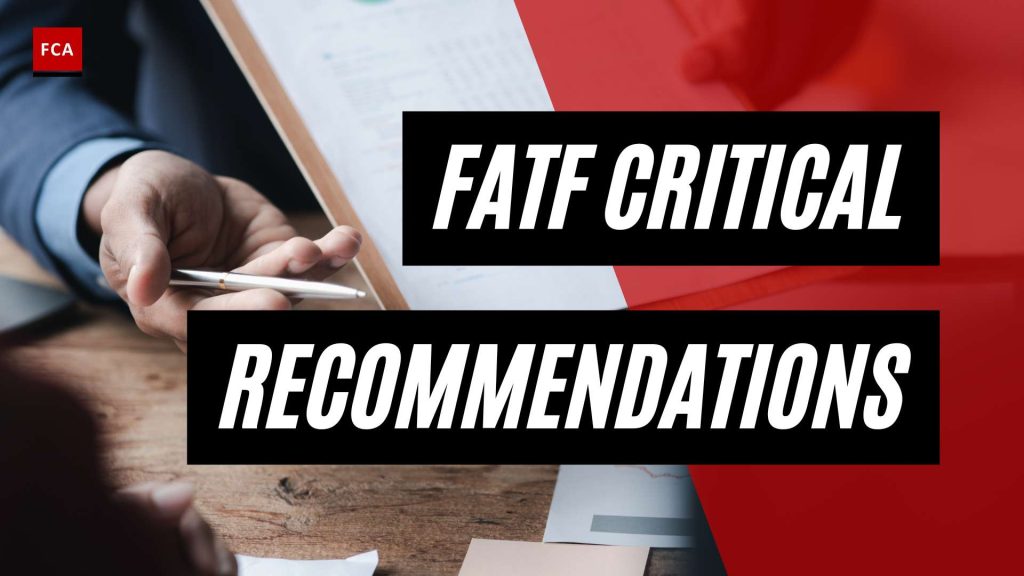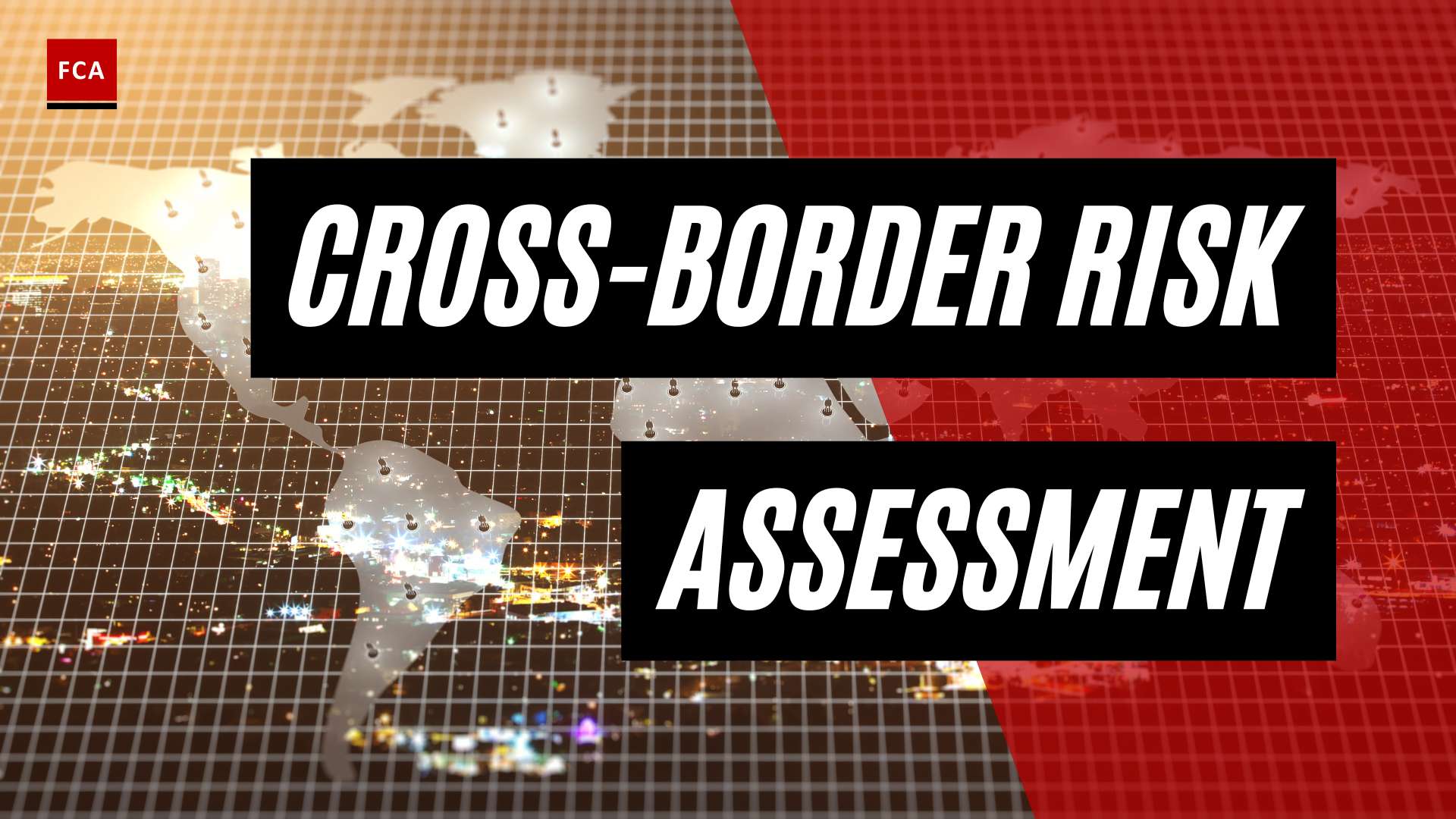Understanding FATF Recommendations
To combat money laundering and terrorist financing activities and ensure transparency in the ownership of legal entities, the Financial Action Task Force (FATF) has issued recommendations related to beneficial ownership. These recommendations are regularly updated to enhance the effectiveness of combating financial crimes.
Overview of FATF Recommendations
The FATF Recommendations call for countries to ensure that legal persons hold adequate, current, and accurate information on their beneficial ownership. This information should include details on the individual who ultimately owns or controls the legal person. By having access to this information, authorities can better understand the ownership structures of legal entities and identify potential risks associated with money laundering and terrorist financing activities (FATF Beneficial Ownership Guidance).
To be effective, the mechanisms used by countries to deliver access to beneficial ownership information must be timely, comprehensive, and reliable. Timely access is crucial to enable competent authorities to promptly investigate and mitigate potential risks. Comprehensive and reliable information ensures that the data available is accurate and up-to-date, enhancing the effectiveness of anti-money laundering (AML) measures.
Importance of Beneficial Ownership
Understanding beneficial ownership is of utmost importance in the fight against financial crimes. By identifying the individuals who ultimately own or control legal entities, authorities can track the flow of funds, uncover illicit activities, and hold accountable those involved in money laundering and terrorist financing.
Transparency in beneficial ownership information allows authorities to conduct risk assessments more effectively and develop targeted AML measures. It enables them to identify high-risk entities, enhance due diligence procedures, and prioritize investigative efforts.
Moreover, access to accurate and up-to-date beneficial ownership information is vital for international cooperation in combating financial crimes. Timely sharing of information between jurisdictions helps detect cross-border illicit activities, trace assets, and facilitate the freezing and confiscation of proceeds of crime.
By adhering to the FATF Recommendations on beneficial ownership, countries can strengthen their AML frameworks, promote transparency in corporate structures, and contribute to the global fight against money laundering and terrorist financing.
In the next sections, we will explore the measures required to ensure transparency in beneficial ownership, including the collection and maintenance of beneficial ownership data, compliance and verification mechanisms, and key guidelines for beneficial ownership.
Ensuring Transparency in Beneficial Ownership
To promote transparency and combat money laundering and terrorism financing, the Financial Action Task Force (FATF) has put forth several recommendations pertaining to beneficial ownership. Two key aspects of these recommendations are ensuring accessible and accurate information and establishing mechanisms for timely access.
Accessible and Accurate Information
FATF emphasizes the importance of ensuring that basic and accurate information on beneficial ownership is accessible to competent authorities without any restriction. This information should be subject to oversight to verify its accuracy and reliability.
To enhance the availability of reliable information on beneficial ownership, FATF advises countries to collect and maintain up-to-date data on beneficial ownership through a central registry. This registry should be easily accessible for competent authorities and financial institutions, enabling them to carry out proper due diligence procedures to prevent money laundering and terrorism financing. By having a centralized repository of beneficial ownership information, authorities can efficiently access the required data when needed, contributing to effective risk management and AML compliance.
It is crucial for countries to ensure that the information collected on beneficial ownership is adequate, accurate, and current. This includes capturing the names of the beneficial owners, details of ownership interests, and information to identify and verify their identities. By maintaining comprehensive and up-to-date information, authorities can effectively trace and investigate any suspicious transactions or activities.
Mechanisms for Timely Access
In addition to accessible and accurate information, FATF recommends establishing mechanisms that allow competent authorities to have timely access to adequate and current information on beneficial ownership. This facilitates prompt investigations and risk assessments, ensuring that authorities can take necessary actions to prevent money laundering and terrorism financing.
Timely access to beneficial ownership information helps in identifying any potential risks associated with specific entities, including the misuse of legal entities for illicit activities. By having proper mechanisms in place, authorities can swiftly respond to emerging threats and implement appropriate preventive measures. This timely access also supports international cooperation, as it enables the sharing of crucial information between jurisdictions to combat cross-border money laundering and terrorism financing effectively (FATF Guidance on Transparency and Beneficial Ownership).
By ensuring accessible and accurate information and establishing mechanisms for timely access, countries can enhance the transparency of beneficial ownership. These measures play a vital role in preventing money laundering, terrorism financing, and other illicit activities. Effective implementation of these recommendations requires collaboration between competent authorities, financial institutions, and international stakeholders to create a robust and interconnected system for combating financial crimes.
Collecting and Maintaining Beneficial Ownership Data
When it comes to combating money laundering and ensuring transparency, the Financial Action Task Force (FATF) has provided critical recommendations regarding beneficial ownership. These recommendations emphasize the importance of collecting and maintaining accurate information on beneficial ownership to prevent illicit financial activities. Two key aspects of this process are establishing a central registry for beneficial ownership and ensuring the adequacy and accuracy of the information collected.
Central Registry for Beneficial Ownership
To enhance the availability of reliable information on beneficial ownership, FATF advises countries to establish a central registry where up-to-date data on beneficial ownership can be collected and maintained. This central registry should be easily accessible for competent authorities and financial institutions, enabling them to carry out proper due diligence procedures to prevent money laundering and terrorism financing (FATF Guidance on Transparency and Beneficial Ownership). By having a central repository of beneficial ownership information, authorities can efficiently access relevant data when conducting their investigations and risk assessments.
Adequacy and Accuracy of Information
FATF suggests that countries should ensure that the information collected on beneficial ownership is adequate, accurate, and current. This data should include the names of the beneficial owners, details of ownership interests, and information to identify and verify the identity of the beneficial owners (FATF Guidance on Transparency and Beneficial Ownership). The accuracy and completeness of the information are crucial for effective due diligence measures to identify and assess potential risks associated with beneficial ownership. It is essential for countries to establish robust mechanisms for verifying the identity and ownership of legal entities to ensure the reliability of the collected data.
By maintaining accurate and up-to-date information, countries can enhance the transparency of their financial systems and improve their ability to detect and prevent illicit activities. Timely access to comprehensive and reliable beneficial ownership information is crucial for competent authorities to perform their duties effectively (FATF Beneficial Ownership Guidance). This information enables authorities to identify and investigate suspicious transactions, assess potential risks, and take appropriate actions to safeguard the integrity of the financial system.
By implementing a central registry for beneficial ownership and ensuring the adequacy and accuracy of the collected data, countries can strengthen their efforts to combat money laundering, terrorist financing, and other illicit financial activities. These measures contribute to a more transparent and secure global financial environment, promoting integrity and trust within the financial system.
Compliance and Verification Mechanisms
When it comes to beneficial ownership, compliance and verification mechanisms play a crucial role in ensuring transparency and combating money laundering and terrorism financing. The Financial Action Task Force (FATF) provides recommendations to guide countries in implementing effective measures. Two key aspects of these recommendations are penalties for non-compliance and international cooperation.
Penalties for Non-compliance
To promote adherence to beneficial ownership requirements, it is essential for countries to establish penalties for non-compliance. Imposing penalties acts as a deterrent and encourages entities to comply with their obligations to provide accurate and up-to-date beneficial ownership information. Penalties can vary depending on the jurisdiction, but they should be substantial enough to discourage non-compliance and discourage individuals from providing false information.
By enforcing penalties for non-compliance, countries can ensure that legal entities are accountable for providing accurate beneficial ownership information. This helps prevent the misuse of legal entities for illicit activities such as money laundering and terrorist financing. It also reinforces the importance of transparency and accountability in the global fight against financial crimes.
International Cooperation
FATF emphasizes the significance of international cooperation in ensuring transparency of beneficial ownership information, particularly for entities that operate in multiple jurisdictions. Effective international cooperation enables countries to share information, collaborate on investigations, and exchange best practices to combat cross-border money laundering and terrorism financing effectively.
By engaging in information sharing and mutual assistance, countries can strengthen their efforts to identify and investigate suspicious transactions and activities involving beneficial ownership. This collaboration is crucial in today’s globalized financial landscape, where illicit funds can easily flow across borders. The exchange of information between competent authorities helps uncover complex ownership structures and track the movement of illicit funds, contributing to a more robust and coordinated response to financial crimes.
International cooperation also facilitates the identification and freezing of assets tied to illicit activities, disrupting the financial networks of criminals and terrorist organizations. By working together, countries can enhance their abilities to detect and prevent money laundering and terrorism financing, ultimately protecting the integrity of the global financial system.
In summary, compliance and verification mechanisms, including penalties for non-compliance and international cooperation, are essential components of effective beneficial ownership frameworks. By imposing penalties for non-compliance and fostering international collaboration, countries can enhance transparency, deter illicit activities, and strengthen the fight against money laundering and terrorism financing.
Key Guidelines for Beneficial Ownership
To promote transparency and combat money laundering and terrorism financing, the Financial Action Task Force (FATF) has established key guidelines for beneficial ownership. These guidelines aim to ensure that accurate and up-to-date information on beneficial ownership is accessible to competent authorities and financial institutions. Let’s explore these guidelines in more detail.
Holding Adequate Information
FATF recommends that countries should ensure that basic and accurate information on beneficial ownership is accessible to competent authorities without any restriction. This information should include the names of the beneficial owners, details of ownership interests, and information to identify and verify the identity of the beneficial owners (FATF Guidance on Transparency and Beneficial Ownership). By holding adequate information on beneficial ownership, authorities can effectively identify and mitigate the risks associated with money laundering and terrorism financing.
Timely Access for Competent Authorities
To enhance the availability of reliable information on beneficial ownership, FATF advises countries to establish mechanisms that allow competent authorities to have timely access to adequate and current information. This ensures that authorities can carry out proper due diligence procedures to prevent money laundering and terrorism financing. Timely access to beneficial ownership information is crucial for identifying suspicious activities and taking appropriate actions to mitigate risks. By facilitating timely access, countries can enhance the effectiveness of their anti-money laundering and counter-terrorism financing measures.
Facilitating Cross-border Information Sharing
Given the global nature of financial transactions, FATF emphasizes the significance of international cooperation in ensuring transparency of beneficial ownership information. Countries are encouraged to engage in information sharing and mutual assistance to combat cross-border money laundering and terrorism financing effectively. By sharing relevant information on beneficial ownership, countries can strengthen their collective efforts to prevent illicit activities and hold accountable those who attempt to misuse legal entities for illicit purposes.
By adhering to these key guidelines, countries can establish a robust framework for beneficial ownership transparency. This framework helps to prevent money laundering and terrorism financing by ensuring that competent authorities have access to accurate and up-to-date information. It also encourages international cooperation to address the challenges posed by cross-border transactions and entities operating in multiple jurisdictions.
For a comprehensive understanding of FATF recommendations and their implications, please refer to our articles on FATF recommendations summary and FATF recommendations explained.








